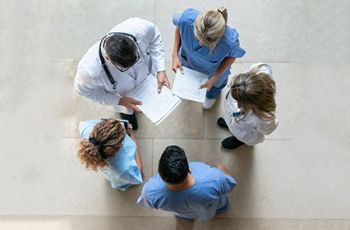
Ross Hall 224 or Zoom
|
Speaker: |
Michael Laposata, MD, PhD Professor and Chairman, Department of Pathology University of Texas Medical Branch |
|
Moderator: |
Marcia Firmani, PhD, MSPH Department Chair of Biomedical Laboratory Sciences Associate Professor of Biomedical Laboratory Sciences, MITM and Pathology The George Washington University |
|
Lecture title: |
Integrative Diagnostics: Making the Diagnostic Expert the Most Important Member of the Health Care Team Now |
|
Abstract: |
The number of laboratory tests and other diagnostic studies available in the United States today is enormous and growing larger quickly. It is becoming extremely difficult for health care providers to establish a diagnosis, especially for complex cases, using the right laboratory tests with no unnecessary studies. There is now widespread recognition in the United States that diagnostic errors account for the preventable deaths of tens of thousands of individuals every year. The growing complexity of the diagnostic process has led to the creation of expert groups known as diagnostic management teams. These expert groups are available for consultation on the selection of the appropriate tests for a given patient, and for the interpretation of the test results in clinical context. It is expected that individuals with a special diagnostic expertise in pathology, laboratory medicine, or radiology will be able to consult on patients with disorders in the area of their clinical expertise, wherever they are. The development of expert diagnostic teams should have a dramatic effect on clinical outcomes because of the increase in accurate diagnoses in a short time, and a similarly beneficial effect on the resources required to effectively manage most patient encounters. |
|
CME Credits: |
The George Washington University Biomedical Laboratory Sciences Department has been approved as a provider of continuing education programs in the clinical laboratory sciences by the ASCLS P.A.C.E.® Program. AMA (TBD) |